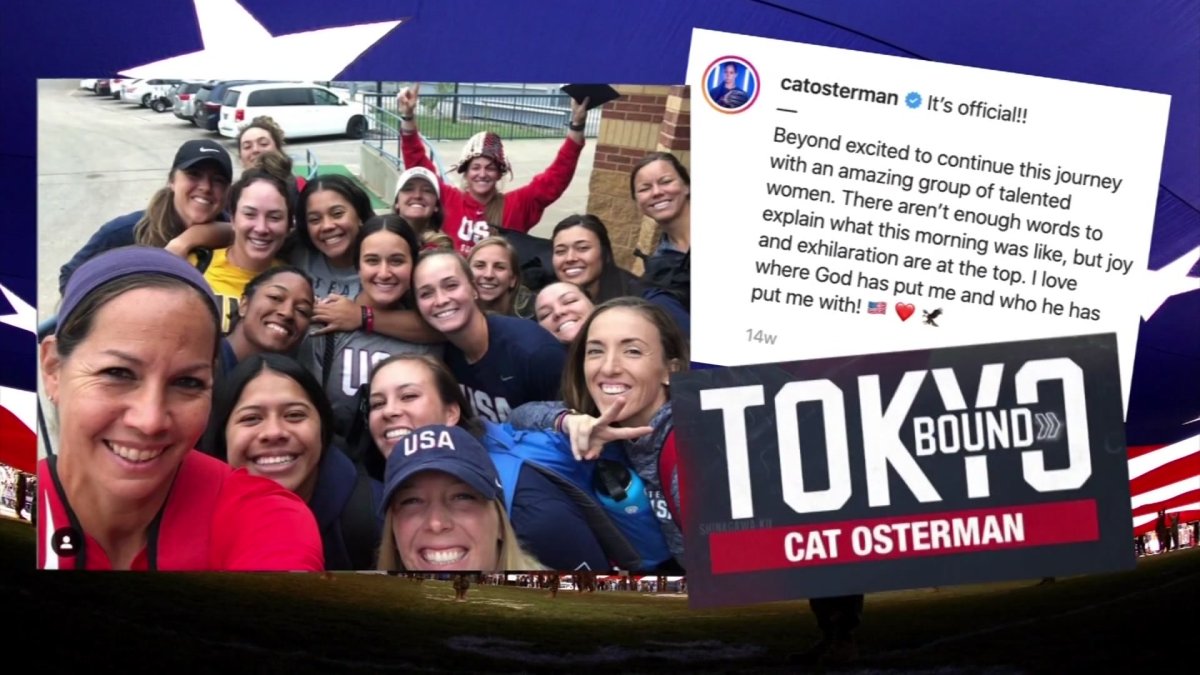
Texas native Cat Osterman’s retirement from softball didn’t last long. The Team USA pitcher talks about returning to the mound and her quest for redemption as softball comes back to the Olympics.
Many athletes will tell you that winning an Olympic gold medal is often followed by retirement. For USA Softball’s Cat Osterman, retirement didn’t last long.
The Houston, Texas, native said it’s all about one thing.
“Determination. This team is determined to go over there and make a statement and play up to the traditions of USA Softball,” Osterman said. “In some ways, it's also going to be a chance at redemption.”
The longtime pitcher and Team USA won Olympic gold in the 2004 Athens Olympics, but then came up short against Japan at the 2008 Beijing Olympics. The team won silver, but let Osterman tell it, it wasn’t good enough.
Get DFW local news, weather forecasts and entertainment stories to your inbox. Sign up for NBC DFW newsletters.
“That stung, because the Olympic Committee voted softball wouldn’t return in 2012. It wasn’t like we could train for 2012 and go win a gold medal back. For a long time, that dream was dead essentially,” Osterman said.
Soon after, she retired, but not really.
She started coaching softball at Texas State University. She was enjoying time with family. She was enjoying retirement.
Local
The latest news from around North Texas.
Once she heard the Olympic Committee was adding softball back, just in time for the Tokyo Olympics, she knew that was her chance to come back and show the world what USA Softball could do.
“In 2017, I started to think about it and train a little and see if I would be able to handle the workload. I was getting back into it slowly. Not throwing full speed at first. Just working out and conditioning,” Osterman said.
She said coming out of retirement wasn’t just for her, but it was also for a team she believed it. A team she knew could re-emerge as the world’s gold-medal team. She was ready to lead them again, but this time, she had to do it during a global pandemic.
“We had to keep in touch from a distance. We couldn’t get together from March of 2020 to January of this year, during the height of the pandemic,” Osterman said.
Aside from the physical, Osterman said the hardest part might be not having her family in the stands. It will be the first time she has gone to an Olympics without them. COVID restrictions mean that no foreign spectators will be allowed at the Tokyo Olympics.
“It’s staying in the mindset that once we get on the field, we are there to compete and whatever we have to do to get on the field is going to be worth it,” Osterman said.